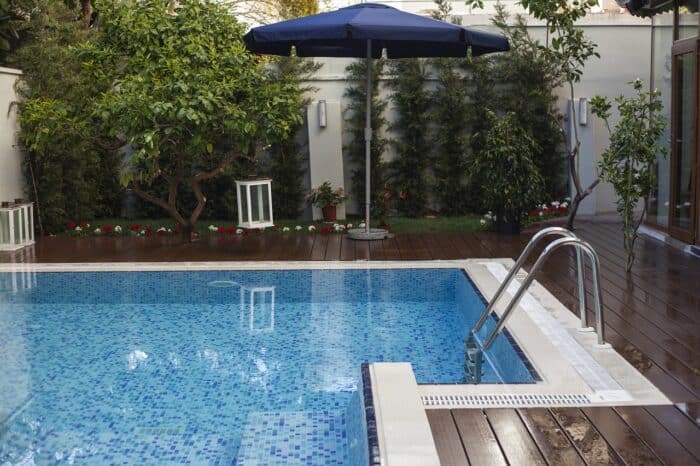Important Considerations
An important consideration for many families purchasing a new home is whether or not it has a pool or if there is room in the backyard to put a pool. A pool is a major investment to your home and your property if it is maintained properly and can increase your property’s value. Otherwise, it is a liability to your property and can bring down your home’s value when you are ready to sell if not repaired.
Key Steps On Shutting Down Pool
As summer comes to a close, it is important to close down your pool correctly so that you do not have any surprises when you get ready to open It next summer and ensure the longevity of your pool. You will also not have to spend as much time cleaning and preparing to open or not being able to open on time because you need maintenance when everyone else is trying to get their pool repaired to open. These are the key steps in a systematic approach to the year-end pool closing process.
- Clean and balance the water. This is the first step to closing your pool and provides the most visible change in your pool. Skim the surface with a large, fine mesh net designed especially for cleaning pools to remove any debris, leaves, insects, and other particles too small to pick up. Brush the walls and vacuum the pool to eliminate dirt and algae. Test the water chemistry and balance the pH (7.2-7.8), alkalinity (80-120 ppm), calcium hardness (180-220 ppm), and cyanuric acid (stabilizer-30-50 ppm) to the levels listed. This will prevent algae and bacteria from growing while the pool is closed.
- Lower the water level. Lowering the water level to below the skimmer, return lines, and jets, and draining the heat pump, water pump, and filter prevents plumbing from freezing. Leaving some water in the pool also helps protect the pool liner from shrinking and cracking and prevents unnecessary damage from debris and harsh weather. It also saves you lots of money when you don’t have to fill the whole pool every year. Your pool should only need to be completely drained and refilled every 10-15 years, but check with a professional first.
- Winterize the plumbing. Blowing out the plumbing lines using a compressor removes any water that might freeze and cause the pipes to break. Then plug the lines with winterizing plugs or expandable rubber plugs to prevent water from re-entering the lines.
- Empty and store equipment. Remove and empty all pool accessories, such as ladders, handrails, diving boards, toys, etc., and store them in a dry, covered place. If you use a pool cover during the summer, clean it thoroughly and dry it thoroughly before folding it and putting it away in a clean, dry place.
- Place air pillows on top of the water then a winter pool cover. Inflatable air pillows under the cover will prevent debris and water accumulation and reduce stress on the pool walls due to ice expansion. The winter cover will keep both debris and sunlight out of the pool which can lead to algae growth. The cover should fit well and be designed for winter use. Secure the cover with water bags or cover clips to keep the cover from flying off and animals from getting in and becoming trapped.
- Regular maintenance. Periodically check the pool during the off-season to make sure the cover is secure and in good condition. Remove any debris that may be on the cover and make sure there is no damage or wear. Periodically check the water chemistry and adjust as necessary.
Hire A Pool Company
If this is your first year as a pool owner or you don’t have the time to close your pool correctly, hire a pool company to come close your pool for you. You don’t want to find out your pool liner is shot or your pipes have burst when you are getting ready to host your first pool party next summer. The money you spend closing your pool correctly at the end of the summer will pay for itself when you do not have to replace plumbing, the liner, equipment, etc.





